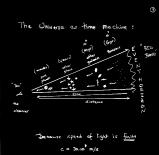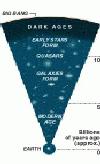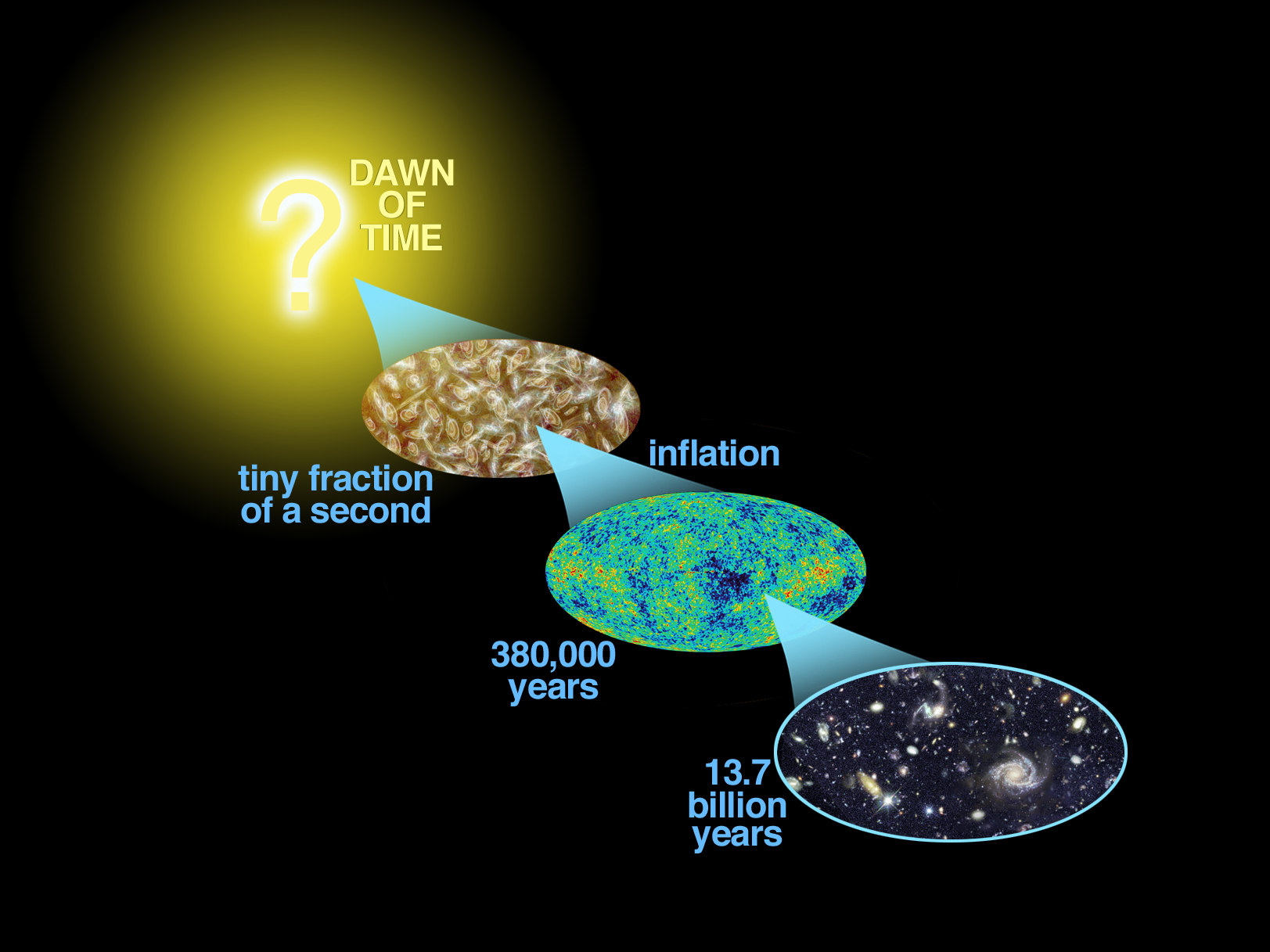Astro 103 - Lecture 25

 Lectures Lectures  |
Lecture page |
|

 Lectures Lectures  |
Lecture page |
|
 |
 |
 |
 Hot Big Bang
( t = 0 sec )
Hot Big Bang
( t = 0 sec )
 inflation
( t = 10-34 sec )
inflation
( t = 10-34 sec )
 baryogenesis
( t = 10-15 sec )
baryogenesis
( t = 10-15 sec )
 nucleosynthesis ( t = 100 sec )
nucleosynthesis ( t = 100 sec )
 decoupling
( t = 0.4 Myr )
decoupling
( t = 0.4 Myr )
 galaxy and quasar formation ( t = 0.1-1 Gyr )
galaxy and quasar formation ( t = 0.1-1 Gyr )
 today ( t = 10 Gyr )
today ( t = 10 Gyr )
homogeneous
isotropic
The expansion stretches photons,
makes hot black-bodies appear cool
Overwhelming observational evidence:
time (age) = distance / velocity = 1 / H0
= 4.1 x 1017 s
 x 107 s/yr
x 107 s/yr = 1.3 x 1010 yr
= 13 Gyr
Or does the rate of expansion change ?
Speed up or slow down?
What happens if the Universe expands forever?
 density, curvature (geometry), and
the nature of dark energy!
density, curvature (geometry), and
the nature of dark energy!
(b) The back-body radiation gets refrigerated by the contraction of space.
(c) The Universe radiates away its excess heat.
(d) The expansion causes a sudden blue-shift in the temperature.
(e) The photons become less interactive.
(b) The estimated age depends only on the curvature.
(c) The Universe will be estimated to be younger.
(d) The Universe will be estimated to be older.
(e) The Universe will be estimated to be younger, but only if there is no expansion.
 Lectures Lectures  |
Lecture page |
|